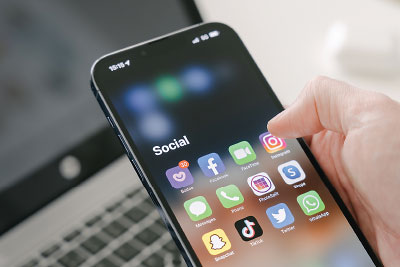Social Media Learning Lab to Offer Lessons in Twitter and TikTok
Abstract
With the use of social media platforms, psychiatrists can easily share information and resources with individuals who may not have access to traditional forms of education.

A panel of six psychiatrists (including two psychiatry residents) who are social media experts will lead a Learning Lab that will provide advice and insight into creating engaging and educational content on social media. The session is aptly titled “Using Social Media to Educate, Advocate, and Empower: A Panel of Social Media Experts in Healthcare.”
The overwhelming majority of adolescents in the United States rely on social media for their news, entertainment, and education. If teenagers begin to experience the initial phases of a mental illness—from chronic insomnia, to periods of intense anxiety, to auditory hallucinations—where do they turn for answers? Odds are that they are not knocking on the doors of psychiatric practices and hospitals. Most will scroll social media to educate themselves, but they may not be able to distinguish between credible sources of information and misinformation.
Where are the psychiatrists on social media? Where are the doctors with years of training in mental health who could share evidence-based practices and resources? They’re largely missing. If we don’t begin to make a serious effort to meet our patients where they are, we are failing them.
As a psychiatry resident, I have built a community of over 2 million followers and supporters across social media, where I post videos educating the masses about mental health problems and treatment options. As of today, these videos have amassed over half a billion views. Every view is a chance to share what could be life-changing information with someone who may never sep foot in a psychiatric practice.
With the use of platforms such as Facebook, Twitter, and Instagram, psychiatrists can easily share information and resources with individuals who may not have access to traditional forms of education. This can be particularly beneficial for those who live in rural or underserved areas, as well as for those who may have mobility or transportation issues. In addition to educating people in need, social media allow psychiatrists to connect with other mental health professionals, share the latest developments in the field, and help brand and market their practices to reach more patients.
Here’s the elephant in the room: social media can be overwhelming and intimidating. Some of us don’t know the difference between a tweet and a TikTok. And that’s OK. We never had a lecture in medical school about how to create a video or write a tweet to educate the public about a new medical advancement. That’s where this session comes in—attendees will learn how to utilize social media to educate patients and the public, create engaging content, build a professional network, and brand one’s practice. These are essential skills for the future of psychiatry, so bring a phone and come to the session! ■




